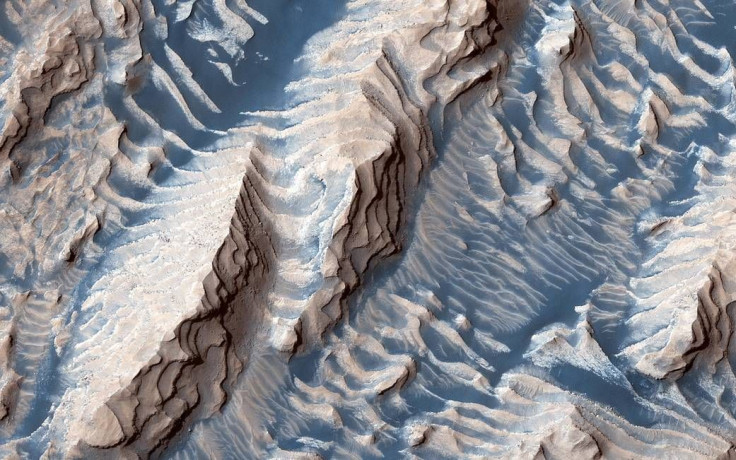NASA Mars Alien News: No, There Are No Insects On Mars

The National Aeronautics and Space Administration (NASA) recently responded to the poster presentation of a professor from Ohio University claiming that there are insects on Mars and they are not aliens.
In his presentation at the Entomological Society of America’s conference in St. Louis, MO, last Nov. 19, Dr. William Romoser claimed that he had photographic evidence proving that Mars is, in fact, teeming with insect life.
The doctor utilized photographs made from previous Martian missions for his study and concluded that rocky outlines in the images had a structure highly similar to the physical structure of earthbound insects, bees in particular.
The Ohio University issued a press release detailing Dr. Romoser’s presentation on their website, which has alarmed the scientific community since it led credibility to what many are calling a dubious claim.
However, Space.com reports that NASA has responded to Dr. Romoser’s claims. While the space agency remains vigilant in attempting to find signs of life on the Red Planet and on other planets in general, there has been no definitive evidence so far.
“The collective general opinion of the large majority of the scientific community is that current conditions on the surface of Mars are not suitable for liquid water or complex life,” NASA said.
The Ohio University, as of today, has not yet responded to NASA’s statement in regards to their professor's supposed groundbreaking discovery. It has, however, taken down the web page containing the statement.
Part of the agency’s upcoming Mars 2020 mission involves spending more time into determining whether life was previously present on the Red Planet.
But until the rover or any of the instruments currently studying Mars sends back evidence of life on the planet, the scientific community believes that claims such as Dr. Romoser’s do more harm than good to the search for extraterrestrial life on the Red Planet.
By releasing sensational and unverified claims, many scientists believe that it takes away from the impact and credibility of future discoveries when they actually happen, which could affect the quality of research going into the future projects.
© Copyright IBTimes 2024. All rights reserved.





















